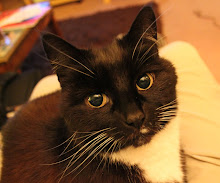
Hot on the heels of breasts, nails, noses, hair, skin colour, eyelashes and teeth, orgasms are the latest component of every woman’s essential kit that no longer has to be natural in order to be effective.
A recent women’s magazine survey of their readers (average age: 16-24) concluded that 71% of them regularly fake orgasm. On the subject, one respondent (ultimate role model: Cheryl Cole) shared these words of wisdom with the sisterhood: “faking an orgasm burns as many extra calories as having a real one anyway”. Job done! Another (hobbies: Facebook) commented, “The thing I don’t like about real orgasms is what I might look like when I’m having one. If you fake it, you’re in control because you know you’re not gonna look weird to your boyfriend - everybody wins!”.
The boffins behind the survey then went on to state that, contrary to popular belief, 77% of the women who regularly fake orgasms are as equally fulfilled as those who “choose” not to respond to their lover’s advances, a conclusion based on the answer to the question that followed the one about faking: “On a scale of 1-10 – 10 being, like, totally off-the-scale! – how satisfied are you?”. The majority of total respondents, whether fakers or not, placed themselves between 7 and 9 on the register. One of them even awarded herself a score of 11, adding “I’m totally passionate about myself!” in the comments box and presumably leaving her boyfriend to be equally ‘passionate’ about something else.
From the Latin verb patior – meaning to suffer or endure – the OED defines passion as “a powerful or compelling emotion or feeling; strong sexual desire; extravagant enthusiasm; violent anger; the narrative of Christ’s sufferings as recorded in the Gospels”. How dated. Today, passion is a basic requirement for all reality TV contestants who must describe their commitment to food/singing/wanting to be Britain’s Next Top Model as being “500% passionate” if they want to be in with a chance of making the final cut. It’s the word that employers search CVs for before any given candidate is selected for interview (passionate about collecting trolleys from the car park? Let’s talk!). It’s the title of Geri Halliwell’s chart-avoiding 2005 album. Redundant as an Icelandic cash machine, passion is, quite literally, spent ...and Love is as devalued as the pound.
Prior to calling in the receivers, Love was the treasured currency of poets, writers and psychologists who respected its familial, platonic and romantic subsets. Then Love sold itself to Clinton Cards...and the rest is tragic history. But before its fall from grace, Love was a flourishing commodity. “How do I love thee? Let me count the ways”, mused Elizabeth Barrett-Browning, considering husband Robert sometime around 1846. Today, the depth, breadth and height that Liz’s soul could reach have been replaced by I Love What You Do For Me, What You Look Like, How Envious You Make My Friends and How Much You Earn. Meanwhile, poetry is for losers and love letters might as well be written in the sand; if you want to say I Love You in 2009, it’s easy.
Many choose to present their ‘loved one’ with repulsive anthropomorphs holding placards in their mutated paws. Others present their declaration written on a chocolate-flavoured penis or a crotchless nylon thong from Ann Summers. Many men prove how much they love their wives by battering them to a pulp, and lots of 14 year old girls know that, in order to demonstrate how ‘passionate’ they are about the local hoodie, they’re obliged to have unprotected sex with him. And the best part is: you don’t even have to mean any of it! Our survey said that 81% of respondents (average number of sexual partners: 9) have said “I Love You” in order to either get something they want or “make him happy”.
You can’t always get what you want. But if you fake it, you’re halfway there.

No comments:
Post a Comment